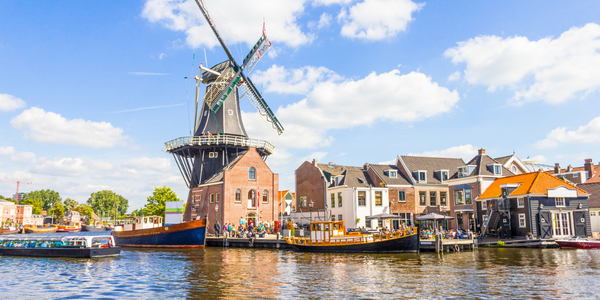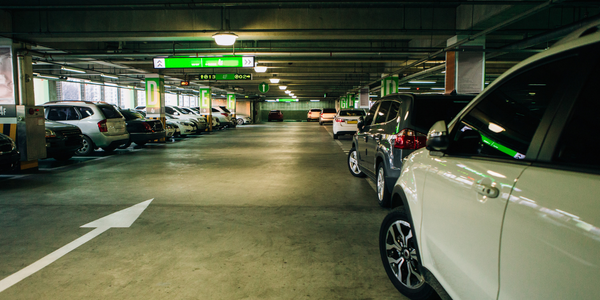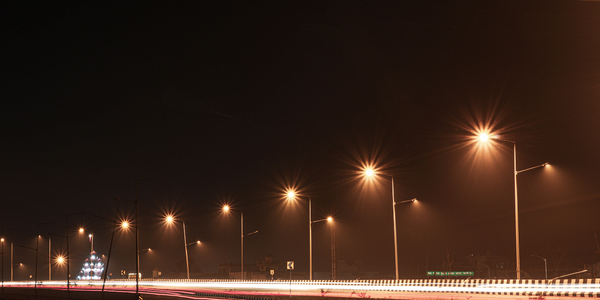Barrie Implements IPS Smart Parking Meters to Overcome Extreme Weather Challenges
公司规模
Mid-size Company
地区
- America
国家
- Canada
产品
- IPS Smart Parking Meters
- IPS Data Management System (DMS)
技术栈
- Solar Power Technology
- Wireless Networking
- Web-based Management System
实施规模
- Pilot projects
影响指标
- Revenue Growth
- Customer Satisfaction
- Productivity Improvements
技术
- 功能应用 - 远程监控系统
- 网络与连接 - 无线局域网
适用行业
- 城市与自治市
适用功能
- 设施管理
- 商业运营
用例
- 智慧城市运营
- 预测性维护
- 远程资产管理
服务
- 软件设计与工程服务
- 系统集成
关于客户
Just 30 minutes north of Toronto lies Barrie, a mid-sized city regarded as one of Canada’s fastest growing urban centers. Once considered a bedroom community of Toronto, Barrie has emerged as an attractive destination for working professionals, with more commuters coming into the city center each day than leaving. While the City’s growing industry makes it an employment hub for the extended region, its proximity to Lake Simcoe’s western shore makes it a popular tourist destination. However, being in a region with prominent seasons means enduring merciless winters. Snow removal, salting icy roads, and bracing for dangerously low temperatures is commonplace for Barrie locals. And often times, technology throughout the City isn’t dependable enough to make it to spring.
挑战
As Barrie grew, so too did its need to reassess municipal programs, such as its paid-parking program, to ensure they were progressively meeting the customer service needs of patrons. The City’s outdated coin-only electronic meters operated on a standard enforcement schedule of Monday – Friday from 9 a.m. – 5 p.m. Parking operations are managed by a small, but efficient parking team consisting of a Manager of Traffic and Parking, Parking Coordinator, two field technicians, and local student interns that help analyze the parking program’s performance. As Barrie sought to upgrade its parking technology, the goals were to provide greater customer service with multiple payment options and maximize efficiency for the City’s parking team in order to do more with less. Another major challenge Barrie needed to overcome was to ensure that the new parking meters would survive the winter and not become inoperable in extreme conditions. Barrie experiences extreme Canadian winters with heavy snowfall, bitter cold temperatures and drastic weather fluctuations that can cause meters to freeze and condensation to form inside the meter. And in the case of solar-powered devices that rely on sunlight to maintain a charge, loss of power from being covered by snow is another potential hazard. Snow falls in Barrie anytime between November and April, with an average of nearly 235 cm (7 - 8 ft.) of snow each winter and temperatures from -25° C to 10.6° C (17.6° F – 51° F) – averages substantially higher and lower, respectively, than many Canadian cities. In light of such harsh environmental conditions, Barrie expected the technology would falter and ultimately fail. Inoperable meters due to snow or frigid temperatures could mean loss of revenue for the City, frustration for motorists, and a burden to technicians that brave the elements to provide maintenance.
解决方案
In order to decide upon the right Smart Parking technology solution that would prove reliable for a city with few dedicated resources, Barrie selected IPS Group for a pilot of single-space, credit-card enabled Smart Parking meters. A true test was to see how the IPS parking meters would fare during the harsh winter months that would coincide with the pilot. In Barrie, every winter presents a challenge with traditional coin-only electronic meters – more snow meant more work and a physical burden on technicians. They would need to wipe off solar panels to keep devices operational and conduct frequent maintenance. Parking meters that were going to survive the long haul needed to be “winterized” to avoid malfunctions that render the device inoperable. IPS meters proved durable enough to withstand one of the most brutal winters experienced in over 10 years in Barrie. IPS meters are engineered to withstand extreme weather conditions. Featuring the latest in solar power technology, IPS Smart Parking meters remain charged in even the harshest conditions as a result of a patented combined solar power and battery system. The solar panel requires only a nominal amount of ambient sunlight to keep the battery packs charged. IPS meters are also environmentally sealed to ensure that various weather elements don’t disturb operation and are independently certified to operate in all climate types. The City of Barrie was pleased with the performance and reliability of the IPS Smart Parking meters and subsequently awarded the contract to IPS Group over three years ago. The meters also resulted in an enhanced customer experience for the businesses in the area. The additional payment options have enhanced the customer experience and credit card transactions now account for 10-15% of all payments in Barrie.
运营影响
数量效益

Case Study missing?
Start adding your own!
Register with your work email and create a new case study profile for your business.
相关案例.

Case Study
Turning A Stadium Into A Smart Building
Honeywell created what it called the “intelligent system” for the National Stadium in Beijing, China, turning the venue for the opening and closing events at the 2008 Summer Olympics into a “smart building.” Designed by highly controversial artist Ai Weiwei, the “Bird’s Nest” remains one of the most impressive feats of stadium architecture in the world. The 250,000 square meter structure housed more than 100,000 athletes and spectators at a time. To accommodate such capacity, China turned to Honeywell’s EBI Integrated Building Management System to create an integrated “intelligent system” for improved building security, safety and energy efficiency.
.png)
Case Study
Smart Street Light Network (Copenhagen)
Key stakeholders are taking a comprehensive approach to rethinking smart city innovation. City leaders have collaborated through partnerships involving government, research institutions and solution providers. The Copenhagen Solutions Lab is one of the leading organizations at the forefront of this movement. By bringing together manufacturers with municipal buyers, the Copenhagen Solutions Lab has catalyzed the development and deployment of next-generation smart city innovations. Copenhagen is leveraging this unique approach to accelerate the implementation of smart city solutions. One of the primary focus areas is LED street lighting.

Case Study
Buoy Status Monitoring with LoRa
The Netherlands are well-known for their inland waterways, canals, sluices and of course port activities. The Dutch Ministry of Infrastructure indicates that there are thousands of buoys and fixed items in and near water environments that would profit from IoT monitoring. One of the problems with buoys for example, is that they get hit by ships and the anchor cable breaks. Without connectivity, it takes quite some time to find out that something has happened with that buoy. Not to mention the costs of renting a boat to go to the buoy to fix it. Another important issue, is that there is no real-time monitoring of the buoys at this moment. Only by physically visiting the object on the water, one gains insight in its status.

Case Study
Barcelona Case Study
Barcelona’s heavy traffic and its associated high levels of pollution were the primary factors that motivated some companies and universities to work on strategies for improving traffic in the city centre. Bitcarrier is one of the technologies involved in the In4Mo Project, whose main objective is to develop the applications that form the core of smart mobility, one of the fundamental pillars of the smart city concept.

Case Study
China Mobile Smart Parking
Smart Parking, powered by NB-IoT technology, is making it easier for drivers to find free parking spots. Cities can better manage their parking assets and maximize the revenue available to them as a result. Drivers searching for parking create congestion and pollution by circling and hunting for available parking. Smart Parking services are able to significantly ease these problems by guiding a driver directly to a parking space.







